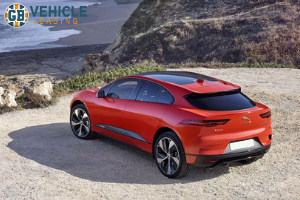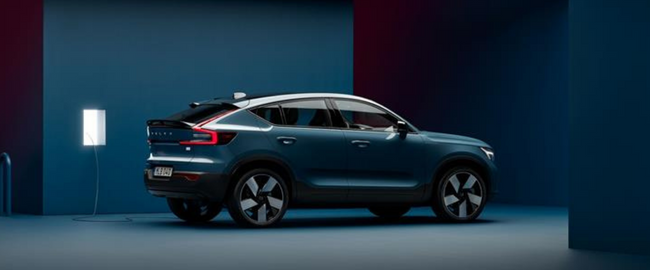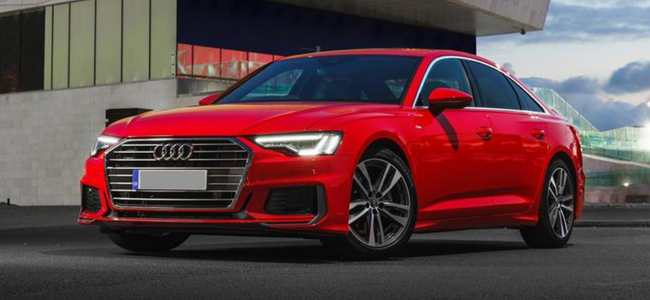
Company Car vs. Car Allowance
At some point in your career, you may find yourself being offered a new set of wheels courtesy of your employer. When this happens, you might be faced with a choice between taking a company car or a car allowance – but what’s the difference, and which is right for you?
If you’re ever in a position to be stuck between the two, it’s important to weigh up both options thoroughly. Read on for our guide to the advantages and disadvantages of a car allowance vs. company car.
What is a company car scheme?
Your company might offer you a company car scheme. A company car scheme is an arrangement which allows employees to use a company-owned vehicle for both business and personal use for as long as they work at the company.
The vehicles offered as part of a company car scheme are often luxury leases, though this does depend on your line of work and job role at your company, with those at an executive level sometimes receiving vehicles valuing in excess of £20,000.
You are more likely to be offered a company car if your job role involves regular travelling for business purposes, such as driving to and from client meetings and sales opportunities, though many employers offer company car schemes as an employee perk.
While employers are generally responsible for funding the upkeep and running costs of the vehicle, those driving a company car are liable to pay Benefit-In-Kind (BIK) tax. The amount BIK tax you’ll pay depends on the vehicle’s market price, income tax band, the age of the car, fuel type, average CO2 emissions and size of the engine.
Advantages of company car scheme
The benefits of signing up for a company car scheme include:
No financial ties – Your company car agreement is only valid for as long as you work at the business, meaning that there are no financial ties to the agreement in the event that you decide to leave your role.
High-end vehicles – If you deal directly with clients or customers, your employer may provide you with a high-end company car, as this helps to make a good first impression at meetings and appointments.
No unexpected costs – Your employer will likely be responsible for the cost of repairs, MOTs, insurance and any routine maintenance work on the car.
Save on fuel – Many employers pay for a percentage, or even all of, the fuel used in the running of a company car.
Disadvantages of company car scheme
Of course, company car schemes do come with some downsides. Some of the disadvantages of company car schemes include:
Lack of choice – Your employer will likely choose the vehicle for you, which means you may end up with a car that doesn’t particularly suit your tastes in terms of appearance, features and driving experience.
Company car tax – Top earners or those driving high-value vehicles with above average CO2 emissions may find themselves paying high rates of BIK tax.
You don’t own the vehicle – You’ll need to return the vehicle to your employer once you leave, which may leave you without a car or easy access to travel.

What is a car allowance?
The most common alternative to a traditional company car scheme is a car allowance scheme. A car allowance is a sum of money given to an employee so that they can buy or lease a vehicle for both business and personal use. Unlike a company car, any vehicle bought using a car allowance then belongs to the employee, even if they decide to leave their job.
A car allowance is added onto the employee’s yearly salary, with the average allowance in the UK running between £4,600 for professionals to £10,300 for company heads, directors and CEOs.
In the case that a car allowance is taken, it’s the employee’s responsibility to purchase or lease the vehicle themselves. The employee is also responsible for the running of the car, including covering the cost of any repairs and maintenance, though your employer may choose to contribute to these outgoings by providing additional mileage allowance.
The other major cost involved with taking a car allowance is the tax you’ll pay on the total amount of the allowance. As the allowance is paid with your salary, the total contribution is liable to the same percentage of national insurance and personal income tax as your regular wage.

Advantages of car allowance
The advantages of using a car allowance to purchase your work vehicle include:
Choose your own car – With a company car allowance, employees can choose the car that’s right for them, rather than having it selected by the company.
Keep the car – Employees are able to keep the vehicle even after leaving the business that provided the allowance.
A good investment – Employees can sell their car later down the line, so purchasing through a car allowance could be a great investment, especially if you already personally own a vehicle.
Disadvantages of car allowance
There are also some downsides to using a car allowance scheme, including:
Increased responsibility – Employees are responsible for the running costs of the car, which includes repairs, insurance, road tax and MOTs.
Allowance is taxable – Employees will pay national insurance and personal income tax on their car allowance, which may leave you with less allowance than the value of the average company car.
Potentially expensive – High-mileage could mean employees are left with an expensive lease agreement, especially if the company makes no extra contributions to help cover costs.
Company car & car allowance: which is right for me?
It’s important to consider all the above points if you find yourself in need of a company vehicle and are faced with the decision between using a company car and taking a car allowance.
A car allowance makes a good choice and ideal investment opportunity for employees who already own a vehicle, as the business vehicle can be sold for profit after leaving the company. Another benefit of taking a car allowance is the opportunity to choose the business vehicle yourself, meaning there’s much less chance you’ll have to put up with an unenjoyable driving experience for work.
However, for employees who don’t want to be financially responsible for the upkeep of a business vehicle, a company car is often the better choice. This is particularly ideal for those who find themselves driving long distances regularly and would like to avoid high fuel costs.
Ultimately, company car and car allowance schemes will different from business to business. If you’re presented with the choice between the two within your own company, you should always check the terms and conditions of the two schemes and assess your own preferences and requirements before making a final decision.
Company car leases with GB Vehicle Leasing
At GB Vehicle Leasing, we offer business lease deals on thousands of popular models. Whether you’re an employer looking to source your company car fleet or an employee looking to secure the best lease deal possible using your car allowance, there’s sure to be something within our vast catalogue to suit you. Take a look at our picks for the best company cars on the market in 2023.
For more information on any car within the GB Vehicle Leasing catalogue, don’t hesitate to get in touch today. Whatever your company car needs might be, you’re bound to find the perfect company car lease deal for you at GB Vehicle Leasing. Also, take a look at our useful Company Car Tax Guide which explains what company car tax is and how it works.
About The Author: Charlotte Kennedy
Charlotte joined the GB Vehicle Leasing team around 6 years ago starting out as an apprentice and is now being a key member of our marketing team.
Find Out More About CharlotteUseful Links
Newsletter Sign Up
Receive the latest content right in your inbox weekly
Latest Posts

Volkswagen Taigo vs T-Roc: How Do They Compare
Here, we explore how they compare...

Skoda Elroq Review 2025
Buckle up, folks! This new Skoda...

Pre-Registered Vehicles Explained
Learn what a pre-registered vehicle is...

Hyundai Inster Review 2025
Move over, conventional cars! The Hyundai...

Vehicle Delivery Lead Times Explained
From custom factory orders to in...













































